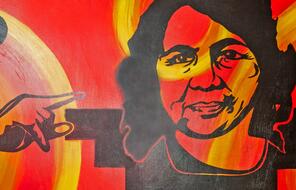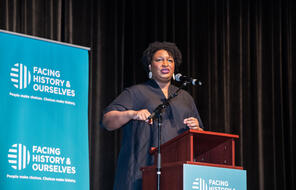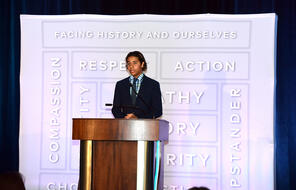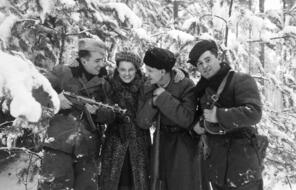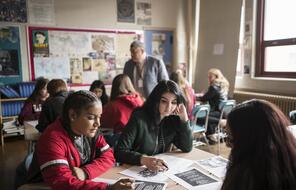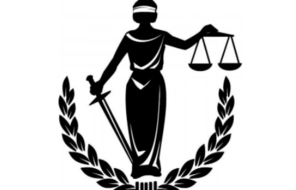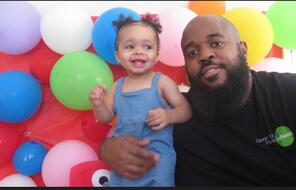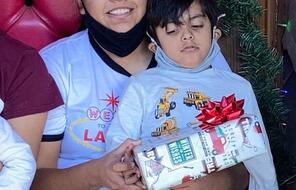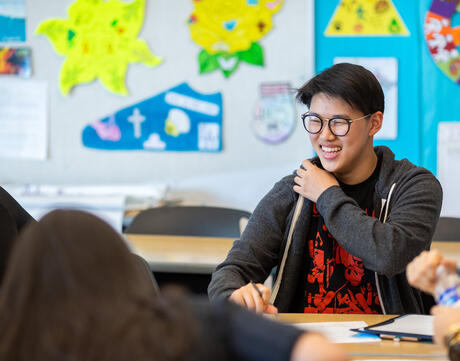
Civic Education in California
The California History–Social Science Framework acknowledges the importance of civic learning both for informed, skilled, and engaged participation in our society, and for the maintenance of a healthy economy. Civic learning is further acknowledged to include not just a foundational knowledge of democratic structures, but the development of cognitive skills, participatory skills, and dispositions which support civic engagement.
Facing History’s approach speaks directly to the development of these skills and dispositions. It also reinforces the overall pillars of the Framework: Content, Literacy, Inquiry, and Citizenship.
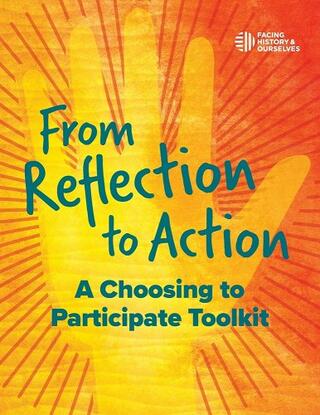
Develop Students' Civic Agency with Our Resource, From Reflection to Action
From Reflection to Action: A Choosing to Participate Toolkit provides a flexible model of reflection and action that can range from one class period at the end of a Facing History unit to a semester-long elective or independent civic action project.
A Proven Approach
A compelling body of research validates our approach to civic education. In a randomized controlled trial, Facing History was shown to significantly increase
- students’ tolerance for others with different political views,
- their capacity for civil discourse, and
- their belief that they can make a difference.
Facing History students score higher than their peers on a civic responsibility index. Facing History alumni are more civically involved than their peers: more likely to vote, to participate in a civic or community group, and to discuss current events.
In addition, the Collaborative for Academic, Social, and Emotional Learning (CASEL) named Facing History as one of only nine middle or high school SEL programs (among nearly 400 nominated) that has a proven positive impact on students, such as increased empathy or more prosocial behavior. Facing History is just one of two cited that works at both the middle and high school level.
Facing History’s pedagogy engages young people with challenging content through a process that builds the knowledge, skills, and dispositions of deep civic learning.
Learn More
Supporting the CA State Seal of Civic Engagement
In 2017, the California Department of Education passed Assembly Bill 24, which calls for the development and implementation of a State Seal of Civic Engagement (SSCE) to be awarded to pupils who have demonstrated excellence in civics education and participation and an understanding of the US Constitution, the California Constitution, and the democratic system of government.
Educators are encouraged to offer early and ongoing opportunities for all students to gain civic knowledge, practice and apply civic skills, develop digital citizenship skills, realize civic responsibilities, and cultivate relationships with their communities. Students are encouraged to consider interdisciplinary projects and issues, using all the knowledge and skills they have gained across the curriculum to engage with their communities.
Facing History’s units and core case studies offer students opportunities to gain civic knowledge and to apply what they have learned in their studies to a current, real-world issue of their choice. From Reflection to Action: A Choosing to Participate Toolkit offers a collection of resources to support students as they endeavor to practice and apply their civics skills and participate in independent civic action projects.



